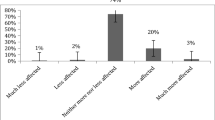Abstract
This paper attempts to examine how the concepts of power, transparency and control are perceived in the life of ordinary Hong Kong people, and how the latter have been adapting to their perceptions and evaluations. The 2008 global financial tsunami and its aftermath will likely have a serious impact on their values. Hong Kong people’s experiences may in some ways represent those of modern men, especially those in East Asia. Democracy is premised on the ideal that life is meaningful through political participation. For most Hong Kong people, this is too demanding an ideal and they instead opt for economic power at the micro-level to secure an optimal measure of control over the socio-economic aspects of their own life. But even this objective has proven extremely difficult to fulfil because of the asymmetry in power between the individual on one hand, and authoritarian regimes, big businesses, organized interest groups, etc. on the other. Very often exit is not a viable option. There may be a tendency to seek satisfaction from religious pursuits, voluntary work, or other external agencies.
Similar content being viewed by others
Notes
Admittedly, most people in Hong Kong did not have the time and expertise to go through the bill in detail. But they certainly became concerned and worried when the legal profession, social workers, journalists, librarians, bankers, the Catholic Church and Christian churches, etc. came out to articulate their opposition. See Cheng [5].
The People’s Alliance for Democracy is mainly a coalition of the Democratic Party (with its base in Bangkok), the military, the crown and the civil service. One of its proposals was that popular representatives should be 70% nominated by certain occupational groups and 30% elected. See Storey and Lee [28, p. 49].
References
Birkinshaw, Patrick. 2006. Transparency as a human right. In Transparency–The key to better governance?, ed. Christopher. Hood, and David. Heald, 47–57. Oxford: Oxford University Press for The British Academy.
Cheng, Joseph.Y.S. 1989. Introduction–China’s modernization programme in the 1980s. In China: Modernization in the 1980s, vol. ix–xix, ed. Joseph.Y.S. Cheng. Hong Kong: The Chinese University Press.
Cheng, Joseph.Y.S. 1989. Political modernisation in Hong Kong. The Journal of Commonwealth & Comparative Politics 27(3): 294–320.
Cheng, Joseph.Y.S. 1990. The basic law: Messages for Hong kong people. In The other Hong Kong report 1990, ed. Richard.Y.C. Wong, and Joseph.Y.S. Cheng, 29–63. Hong Kong: The Chinese University Press.
Cheng, Joseph.Y.S. 2005. Introduction: Causes and implications of the July 1 protest rally in Hong Kong. In The July 1 protest rally–Interpreting a historic event, ed. Joseph.Y.S. Cheng, 1–26. Hong Kong: City University of Hong Kong Press.
Cheng, Joseph. Y.S. 2008. Consumers losing out in a “free market”. South China Morning Post (Hong Kong). 31 December.
Cheng, Joseph. Y.S. Hong Kong’s Legislative Council elections in September 2008: Maintaining the political status quo (now under review by Issues & Studies).
Drafting Committee for the Basic Law. 1988. The draft basic law of the Hong kong special administrative region of the People’s Republic of China (for solicitation of opinions). Hong Kong: Drafting Committee for the Basic Law.
Fener, Lewis. 1963. What is alienation? The career of a concept. In Sociology on trial, ed. Maurice. Stein, and Arthur. Vidich, 127–147. Englewood Cliffs, New Jersey: Prentice-Hall.
Foucault, Michel. 1980. The history of sexuality, vol. I: An introduction. New York: Vintage Books.
Freidson, Eliot. 1968. The impurity of professional authority. In Institutions and the person, ed. Howard.S. Becker, Blanche. Geer, David. Riesman, and Robert.S. Weiss, 25–34. Chicago: Aldine.
Freidson, Eliot. 1972. Profession of medicine. New York: Dodd, Mead.
Friedman, Edward. 2009. How economic superpower China could transform Africa. Journal of Chinese Political Science 14(1): 1–20.
Heald, David. 2006. Transparency as an instrumental value. In Transparency–The key to better governance?, ed. Christopher. Hood, and David. Heald, 61–68. Oxford: Oxford University Press for The British Academy.
Hirschman, Albert.O. 1970. Exit, voice, and loyalty: Responses to decline in firms, organizations, and states. Cambridge, Massachusetts: Harvard University Press.
Hughes, Richard. 1968. Hong Kong: Borrowed place, borrowed time. London: Andre Deutsch.
Huntington, Samuel.P. 1993. The third wave–Democratization in the late twentieth century. Norman and London: University of Oklahoma Press.
King, Ambrose.Yeo.-chi. 1975. The administrative absorption of politics in Hong Kong. Asian Survey 15(5): 422–439.
Lau, Siu.-kai. 1962. Society and politics in Hong Kong. Hong Kong: The Chinese University Press.
Lord, Kristin.M. 2006. The perils and promise of global transparency. Albany: State University of New York Press.
Oliga, John.C. 1996. Power, ideology, and control. New York: Plenum Press.
O’Neill, Onora. 2002. A question of trust–The BBC reith lectures. Cambridge: Cambridge University Press.
Radcliffe, C.J., and Radcliffe.First. Viscount. 1953. Freedom of information: A human right. Glasgow: Jackson, Son and Co.
Ramo, Joshua.Cooper. 2004. The Beijing consensus. London: The Foreign Policy Centre.
Roberts, Alasdair. 2006. Dashed expectations: governmental adaptation to transparency rules. In Transparency–The key to better governance?, ed. Christopher. Hood, and David. Heald, 109–118. Oxford: Oxford University Press for The British Academy.
Russell, Bertrand. 1938. Naked power. Power–A new social analysis Chapter 6, 57–71. London and New York: Routledge. (reprinted in 1995).
South China Morning Post (Hong Kong). 17 June 1987.
Storey, Ian., and Lee.Poh. Onn (eds.). 2009. Regional outlook–Southeast Asia 2009–2010. Singapore: Institute of Southeast Asian Studies.
United Nations. 1946. General assembly resolution 59(1) at 95 United Nations documents A/64. 14 December.
Westwood, Sallie. 2002. Power and the social. London and New York: Routledge.
Williamson, John. 1990. What Washington means by policy reform. In Latin American adjustment: How much has happened?, ed. John. Williamson, 8–19. Washington, D.C.: Institute for International Economics.
Wrong, Dennis.H. 1995. Power–Its forms, bases, and uses. New Brunswick and London: Transaction Publishers.
Author information
Authors and Affiliations
Corresponding author
Rights and permissions
About this article
Cite this article
Cheng, J.Y.S. Power, Transparency and Control: Hong Kong People’s Adaptations to Life. Int J Semiot Law 24, 163–177 (2011). https://doi.org/10.1007/s11196-010-9208-3
Published:
Issue Date:
DOI: https://doi.org/10.1007/s11196-010-9208-3




